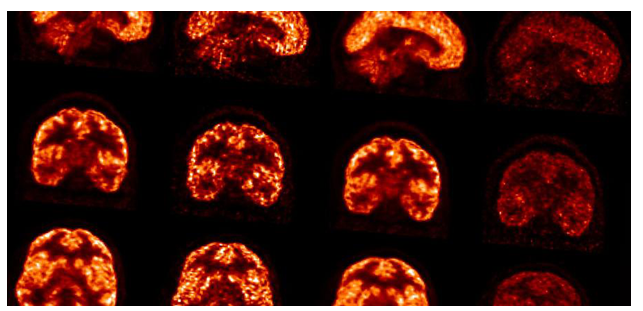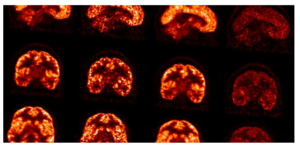New Radioactive Tracer Lights Up Brain’s Connections to Study Disorders
Various brain disorders change the physical nature of synapses in the brain, but this fact has been useless in clinical practice because evaluating these changes could only be done once the patient passes away. Now researchers at Yale University have developed a technique, published on in journal Science Translational Medicine, that relies on PET (positron emission tomography) and a novel tracer to image billions of synapses at the same time.
Their radioactive tracer was engineered to grab onto the synaptic vesicle glycoprotein 2A (SV2A), which after injection can be viewed on a PET scanner.
The researchers first tried it on a baboon and then in patients with temporal lobe epilepsy, imaging the tell-tale signs of reduced synaptic connections.
“This is the first time we have synaptic density measurement in live human beings,” said Yale’s Richard Carson, who is senior author on the study, in a statement. “Up to now any measurement of synaptic density was postmortem.”
http://www.medgadget.com/2016/07/radioactive-tracer-lights-brains-connections.html



